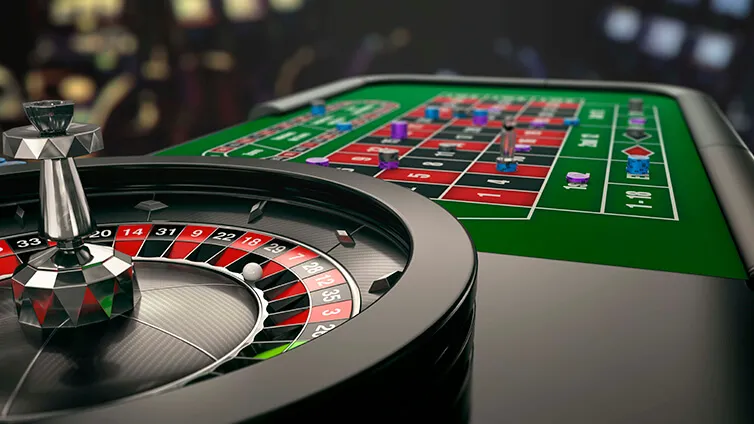In the world of entertainment, few activities match the excitement and allure of casino gambling. Whether it’s the spinning roulette wheel, the clinking of slot machines, or the intense concentration around a poker table, casinos offer an escape into a world of chance, strategy, and high stakes. This article delves into the various facets of casino gambling, exploring its history, popular games, psychological aspects, and the potential risks associated with this exhilarating pastime.
Casino gambling has long been a part of human culture, captivating individuals with its promise of fortunes and thrills. From ancient civilizations to modern times, the allure of testing one’s luck and skill has remained constant.
The History of Casino Gambling
The origins of casino gambling can be traced back to ancient civilizations such as the Greeks and Romans, who engaged in various forms of games of chance. Over the centuries, gambling evolved, and by the 17th century, the first official casinos emerged in Italy. These establishments provided a controlled environment for gambling activities and set the stage for the casino industry we know today.
Popular Casino Games
Slot Machines: The Allure of the Reels
Slot machines, often referred to as “one-armed bandits,” are icons of the casino experience. With their flashing lights and enticing sounds, they offer a simple yet captivating form of entertainment. Players pull the lever or press a button, hoping to align symbols on the spinning reels for a chance to win.
Blackjack: A Game of Skill and Chance
Blackjack, also known as 21, is a card game that combines strategy and luck. Players aim to beat the dealer by reaching a hand value as close to 21 as possible without exceeding it. The game’s blend of skillful decision-making and suspenseful draws makes it a favorite among casino enthusiasts.
Roulette: Spinning the Wheel of Fortune
Roulette is a game of pure chance, centered around a spinning wheel and a ball. Players place bets on where the ball will land, with various betting options offering different odds. The excitement builds as the ball slows down and finds its final resting place.
Poker: Where Skill Meets Psychology
Poker is a unique casino game that intertwines skill, strategy, and psychological insight. Beyond understanding the rules and odds, successful poker players read opponents, manage their emotions, and make calculated bets. The interplay of these elements creates a dynamic and engaging gameplay experience.
Psychological Aspects of Gambling
The Gambler’s High: Chasing the Rush
The act of gambling triggers a release of dopamine, a neurotransmitter associated with pleasure and reward. This phenomenon, often referred to as the “gambler’s high,” contributes to the addictive nature of gambling. Players chase the euphoric feeling of winning, which can lead to compulsive behavior.
Risk Perception and Decision-Making
Gamblers often face challenging decisions involving risk and reward. The way individuals perceive risk can impact their choices—some may embrace risk, while others avoid it. The interplay between risk perception and decision-making plays a crucial role in the gambling experience .
Cognitive Biases in Gambling
Gamblers are susceptible to cognitive biases that can cloud judgment. The “illusion of control” leads players to believe they can influence random outcomes, while the “gambler’s fallacy” creates false expectations based on previous results. Understanding these biases is essential for responsible gambling.
The Bright Side of Casino Gambling
Social Interaction and Entertainment
Casinos provide a vibrant social atmosphere where individuals can interact, share experiences, and celebrate wins together. The communal aspect of casino gambling adds a layer of enjoyment beyond the games themselves.
Potential Financial Gains
While winning is never guaranteed, the potential for significant financial gains attracts many to casino gambling page link. Skilled players who employ strategy and discipline can find opportunities to capitalize on favorable odds.
The Dark Side of Casino Gambling
Addictive Potential and Problem Gambling
For some individuals, the excitement of gambling can lead to addiction. Problem gambling can have severe consequences, affecting mental health, relationships, and financial stability. Recognizing the signs and seeking help are crucial steps in mitigating this risk.
Financial Consequences and Bankroll Management
Uncontrolled gambling can lead to financial hardship. Establishing a strict budget, or bankroll, is essential to avoid overspending and protect one’s financial well-being.
Impact on Mental Health and Relationships
The pursuit of constant wins can strain mental health and relationships. The highs and lows of gambling can exacerbate anxiety and depression, while neglecting personal connections can lead to isolation and loneliness.
Responsible Gambling Practices
Setting Limits: The Importance of Self-Control
Responsible gambling involves setting limits on time and money spent at casinos. By establishing these boundaries, players can enjoy the experience without succumbing to impulsive behavior.
Recognizing Problem Gambling
Identifying signs of problem gambling is crucial for early intervention. Persistent thoughts about gambling, neglecting responsibilities, and jeopardizing relationships are red flags that should not be ignored.
Seeking Help and Support
Overcoming a gambling problem often requires professional help. Support groups, therapy, and helplines offer resources for individuals struggling with addiction.
Conclusion
Casino gambling is a multifaceted activity that combines chance, skill, psychology, and entertainment. While it offers thrills and the potential for gains, it’s essential to approach it with caution and responsibility. By understanding the psychological aspects, recognizing the risks, and adopting responsible gambling practices, individuals can enjoy the excitement of the casino while safeguarding their well-being.








